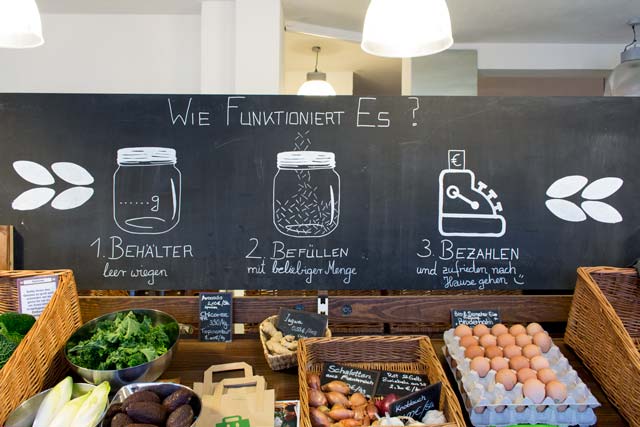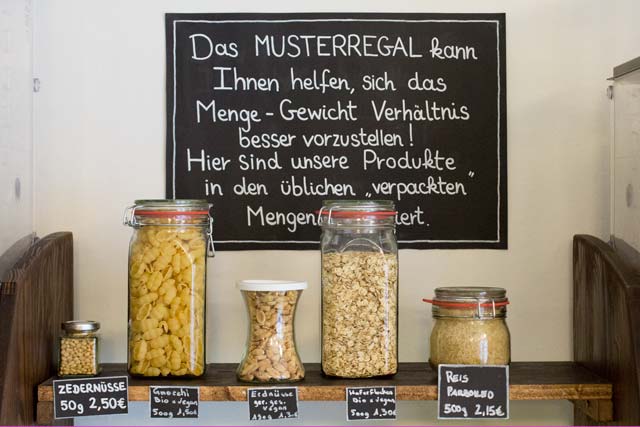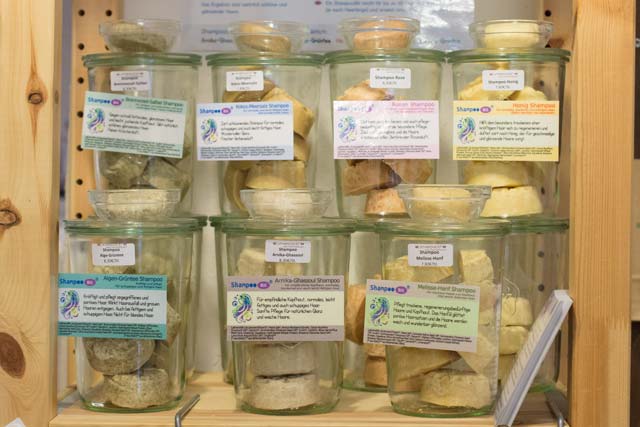
- Inspiring People -
- 4mins -
- 882 views
This German supermarket is celebrating 5 years totally free from plastic packaging
Zero Waste Bulk Store ‘Unverpackt Kiel’ in Germany has been selling its entire range of products free from plastic packaging since it opened its doors in February 2014.
In German, “unverpackt” means unpackaged
Unverpackt Kiel was Germany’s very first zero waste bulk store when it opened in February 2014 in Kiel. This isn’t just some store that decided to install a bulk aisle, either; proprietor Marie Delaperrière opened this store to enable her customers to buy everything they need on a day-to-day basis, with completely zero waste and almost 100% organic!
Selling and buying in bulk reduces waste by reducing packaging
This kind of zero waste bulk store focus on sustainable practices and usually only offer bulk items, or at least the most eco-friendly alternatives.
In German, “unverpackt” means unpackaged. Ever since this very first “unverpackt” store opened five years ago, the concept of selling in bulk and reducing waste by reducing packaging has become more and more popular.
The next store (called Original Unverpackt) opened just six months later in Berlin with a hugely successful crowdfunding campaign and a lot of media coverage.
Since then, more and more package-free stores have opened or are about to open in Germany and other countries around the world.
Source: WastelandRebel.com

How does it work to shop there?
How does it work to shop there?
So, first of all, you should bring your own containers, cloth bags, or jars and weigh them on a scale.
A sticker will be printed with the weight of your container that you can stick onto it. The great thing about this store – you don’t have to use the sticker system!
You can also use a marker if you want to and they will tare it when you pay for everything.
Or you can buy one of the paper bags, even though they do encourage you to use the donated jars instead.
At the register they weigh each item and subtract the weight of the container. It’s easy and doesn’t take as long as one might expect.
How to fill your containers, jars, or cloth bags
To help you fill your containers, they have funnels in various sizes, bowls, and spoons. You will find these right next to the coffee station (they sell climate-neutral Fairtrade organic coffee!)
And to help you with their bulk bins, they have put up very easy to understand explanations everywhere.
Source: WastelandRebel.com

The environment and your wallet both win when you’re not paying for packaging
They have a small section for (sticker-free) produce and eggs, and a fridge with dairy products in returnable jars and glass bottles (you pay a 20 cent deposit).
They stock legumes, dry soy meat, grains, pasta and rice, and they also have a great selection of cereal, seeds, and nuts.
A bulk bin for coffee and a wide range of teas, plus candy and vegan sweets.
They also have a great selection of spices, plus baking soda, baking powder, cocoa powder, and flour.
Dish wash, laundry detergent, and all sorts of other cleaning products.
Cooking oils and vinegars stand in small stainless steel barrels. They also sell juice in returnable bottles. There’s also a pretty good selection of wines and other alcoholic tipples.
And they sell something that is so hard to come by – eco-friendly candles! Normal candles are made from petroleum, so obviously they are not sustainable.
However, a lot of supposedly “eco-friendly” candles are made from either soy wax or palm oil, making us think they are sustainable when they are not.
These candles are made from locally sourced, GMO free plant oils. No palm oil, no crude oil, no animal fat, compostable and climate-neutral.
Compared to other “health food” stores, it’s pretty good value for money when you consider that generally, 15% of what we pay for an item is paying for its packaging.
Source: WastelandRebel.com


